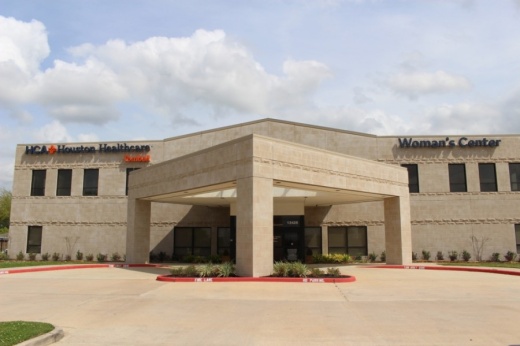“Women are usually the healthcare decision makers for the family, but they often spend more time on others than on themselves. We need women to stay healthy and strong to continue taking care of their families and serving as leaders within our community,” Ford said. “For that to happen, they need access to additional healthcare resources with all the modern conveniences available we can bring to them.”
HCA Houston Healthcare Tomball spent approximately $5.5 million to renovate the hospital’s former diagnostic building to bring quality women’s care closer to the community, Ford said.
“Previously, women in Tomball, Magnolia, Creekside and the surrounding communities may have had to travel outside the area to received female health services,” she said.
HCA Houston Healthcare Tomball is among several entities eyeing expanded women’s care throughout the Greater Tomball area to improve proximity to quality care, health care leaders said.
Texas ranks No. 49 of 50 states for women’s health, according to America’s Health Rankings Health of Women and Children 2019 Report. The report lists Texas’ high percentage of uninsured women—nearly half—as a challenge to women’s health outcomes in the state as well as the lowest percentage of women ages 21-44 receiving a cervical cancer screening within the last three years and near-lowest percentage of women ages 18-44 having a dedicated health care provider.
Solis Mammography opened within The Woman’s Center in August as a move to provide convenient mammography care to Tomball residents, Solis Chief Medical Officer Dr. Alexander Sardina said. He said only about 55% of women in the U.S. receive an annual mammogram despite insurance providers covering it.
“By us kind of placing strategically focused retail stores near the community where the woman spends most of her time ... our experience has been that we can impact compliance because we’re making it more accessible and more time-efficient for them,” he said.
Recent openings, expansions
Melody Molloy, executive officer of operations and oncology for Genesis Medical Group, added greater access to care can lead to early diagnoses and less stress for patients.“By providing all of this type of care in the community, it allows patients to focus on their health, not focus on the stressors of additional dollars that are spent in traveling and eating out,” she said. “You find patients have chronic illness—whether it be cancer or diabetes, cardiovascular issues—those patients that don’t have those extra stressors do better.”
Genesis Medical Group moved into its site near Hwy. 249 and Northpointe Boulevard about two years ago, offering radiation and medical oncology, but it expanded last fall to include Venus MRI and Women’s Center, which performs MRI, CT scan, ultrasounds and X-ray services as well as on-site breast biopsies, Molloy said.
“Patients want to be treated close to their home, but they also want to know that they’re getting appropriate treatment,” she said. “They don’t want it to feel like they’re lacking treatment options because they’re not downtown.”
At surrounding hospitals, women’s service expansions are also taking place.
As part of Houston Methodist's $240 million expansion project in The Woodlands—which broke ground in September, according to previous reporting—Houston Methodist The Woodlands will add 32 beds for its childbirth center and 10 beds in its neonatal intensive care unit, according to information from the hospital. Its expansion of women’s services also includes a dedicated space for the hospital’s outpatient lactation consultants, pelvic floor therapy and strategic development of a holistic approach to women’s health.
The Houston Methodist Willowbrook Hospital, located just south of Tomball, is several years into its expansion of women’s services, said Dr. Stephanie Bruce, the hospital’s chief medical officer and a practicing OB-GYN.
“We identified a long time ago that we wanted to be the hospital of choice for women having a baby in the northwest Houston area,” she said. “We really feel the need to expand the physical facilities so we are probably looking at completing all of that work over the next three years.”
The roughly $18 million project includes a new antepartum unit for women who need to be hospitalized during their pregnancy—which opened earlier in 2020—and plans to expand labor and delivery rooms, postpartum rooms, and the hospital’s NICU. Houston Methodist Willowbrook is also making plans to develop low-intervention labor and delivery rooms to provide expectant mothers a home-like setting while still being near emergency services, Bruce said.
“We’re really committed to it being a very state-of-the-art expansion for women’s services. It’s not just about more rooms and more beds; it’s about what kind of services we’re offering,” she said. “Care for women is of the utmost importance because I think care of the community hinges around the women in the community.”
Bruce also said she anticipates some changes to the way women’s care is delivered following the coronavirus pandemic, such as the explosive rise of telemedicine and streamlined procedures.
“There are some things that we have learned and adapted with COVID-19 that are improvements we will never go back from. Our faster office check-in, doing more visit preparation virtually and via phone prior to arrival, has really streamlined office care. There are more virtual obstetric visits now, which as a working mom I would have really appreciated and embraced 10 years ago,” she said. “We were already starting to look at better and more efficient ways to deliver patient care, but this has really escalated it to the forefront.”





